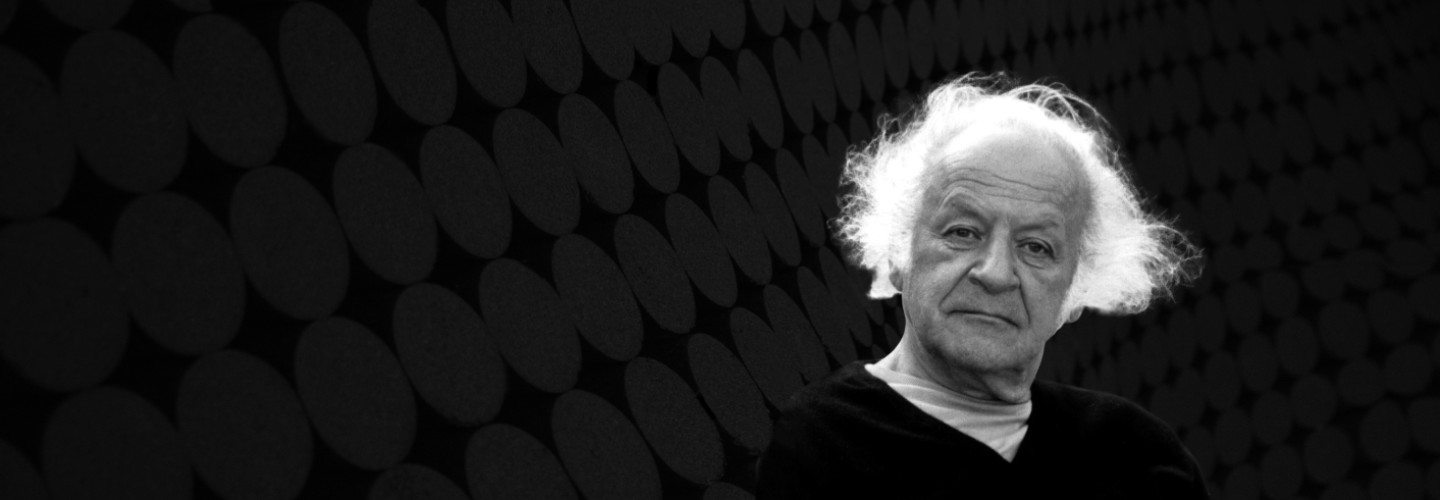

Rolf Liebermann was born on 14th September 1910 in Zurich, studied law at the university of his home town from 1929-1933, and music at José Berr's private conservatory. His first compositions (chansons) date from 1933-1936; at the time Liebermann was studying conducting with Hermann Scherchen. He worked as Scherchen's private secretary in Budapest and Vienna in 1937-1938, where Scherchen had founded the Musica Viva orchestra (mainly with Jewish musicians who had fled into exile from Germany). In Switzerland Liebermann gave tuition to refugee children, and wrote music criticism. He did his military service in Ascona. There he also studied composition from 1940 on with Vladimir Vogel.
From 1945 to 1950 Liebermann worked as a recording engineer with Radio Zurich; from 1950 to 1957 he headed the orchestra department of the Swiss Radio (now called Radio DRS Zurich). From 1957 to 1959 he was head of the main music section of the Norddeutscher Rundfunk and from 1959 to 1973 General Manager of the Hamburg State Opera. He made this a contemporary centre of contemporary music theatre (with 23 first performances, of which 21 were commissioned works). He filled a similar position in Paris (Administrateur Général du Théâtre National de l'Opéra de Paris). At this time he wrote a number of books: Actes et entractes, Paris 1976 (Opernjahre, Bern/Munich 1977) and En passant par Paris. Opéras, Paris 1980 (Und jedermann erwartet sich ein Fest. Musiktheater, Frankfurt.a.M – Berlin – Vienna 1981). With the director Joseph Losey, in 1979 Liebermann produced a film version of Mozart's opera Don Giovanni, which Lorin Maazel conducted.
From 1983 to 1987 Liebermann was Director of the International Summer Academy of the Mozarteum Conservatory in Salzburg. From 1985 to 1988 he once more was General Manager of the Hamburg State Opera. In 1998, at his instigation, the first jazz opera was produced in the premises of the Kampnagel factory in Hamburg: Cosmopolitan Greetings by Georg Gruntz and Rolf Liebermann (music), Allen Ginsberg (text) and Robert Wilson (set and direction).
As a composer, Liebermann attained international renown, not least for his one-act operas Leonore 40/45 (première: Basel 1952), Penelope (première: Salzburg 1954) and Die Schule der Frauen (première: Louisville,Kentucky 1955), which had its the first European performance in a complete three-act version at the Salzburg festival. There followed the operas La Forêt (Hélène Vida, after the comedy by Aleksandr Ostrovskrij, première: Geneva 1987) and Freispruch für Medea (première: Hamburg 1995). Liebermann's Concerto for Jazz Band and Symphony Orchestra (première: Donauschingen 1954, directed by Hans Rosbaud), an early attempt to combine jazz with dodecaphony, also met with interest and recognition.
Liebermann received many awards in Switzerland, in Austria, the Federal Republic of Germany, in France (Commandeur de l'Ordre de la Légion d'honneur), Ordre des Arts et des Letters), Italy, Great Britain and the USA. He was a member of the Academy of Arts in Berlin and in Hamburg, an Honorary Member of the Mozarteum in Salzburg and the Royal Society of Arts in London. Liebermann died in Paris on 2nd January 1999.
Awards and Successes
In a long and successful career Rolf Liebermann can celebrate many successes and awards of recognition:
Honorary doctor of the Universities of Berne and Spokane (Washington)
Member of the Academy of the Arts of Berlin and Hamburg
Honorary member of the Mozarteum Academy in Salzburg and the Accademia Medicea in Florence
Honorary member of the Royal Society of Arts in London
Honorary member of the State Opera in Hamburg
Awards and Prizes:
"Wappenmedaille in Gold" of the City of Salzburg
Cross of Germany
Commandeur de l’Ordre de la Légion d’Honneur
Commandeur de l’Ordre des Arts et des Lettres
Great Music Prize of the City of Zurich
Mozart Prize of the City of Bremen
Conrad Ferdinand Meyer Prize
Reinhardt-Ring
Premio Lorenzo il Magnifico
